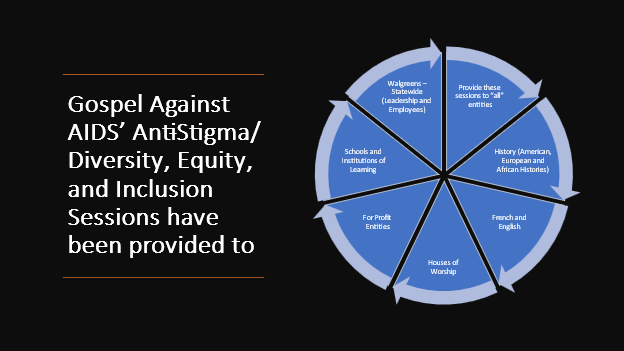Training for Religious Leaders
Under the direction of the spiritual advisory and education departments, GAA/ GREATNES provides HIV/AIDS prevention and capacity development training sessions
to staff and clients of community based organizations, for profit businesses, churches, schools, and non profit organizations.
The training consists of AIDS 101, anti-stigma sessions, and capacity development for planning and implementing faith based HIV prevention programs. GAA workshops can be tailored to your organization needs and adapted in other languages.
GAA also provides trainings on Diversity, Equity, and Inclusion (DEI) with a focus on social justice and health equity.
Hispanic/Latino/Latina Religious Leaders Training
GAA/GREATNES provides training sessions in English and Spanish for naturalized US
citizens from Spanish speaking countries. These sessions have been held at the Consulate
of Mexico and Hispanic/Latino houses of worship. These sessions, sensitive to the
variations of translations and cultural nuisances, target religious leaders, congregation
members, individuals and their families residing in the United States.
Telemedicine Training Sessions (COVID-19)
As we face yet another pandemic, GAA/GREATNES now offers Telemed Sessions
for PLWH/A and their Service Provider on COVID 19. These sessions are designed
to dispel myths and provide facts about transmission and prevention of COVID 19
facilitated by Dr. Theodore Jones and Dr. Peter Gulick they also provide updates
on testing and vaccines, women (HIV positive) and COVID 19, sexual transmission
and substance abuse as they relate to COVID 19. While these sessions were
developed for PLWH/A the information is understandable and applicable for the
general population. In addition, an overview of our Spiritual Care and Counseling
component is also provided. In this section, we assist both clients and providers to
understand the importance of incorporating “faith” in a holistic care plan for both
clients and as a method for self-care for front line staff.


